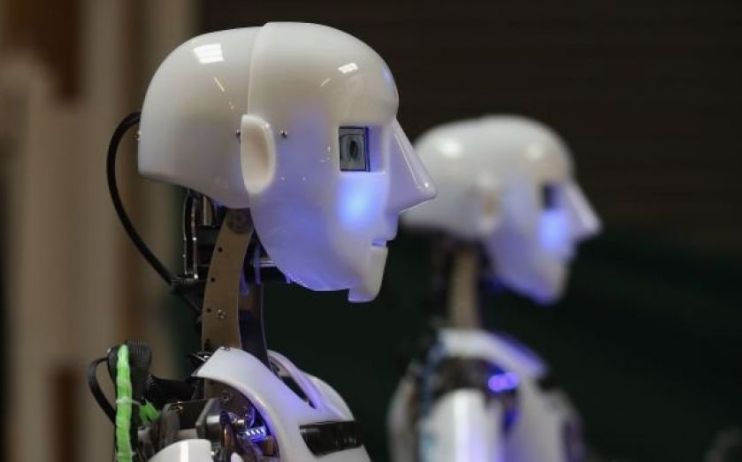Would you want to be trained by an AI?

By 2025, five billion people will be connected to each other through four billion smartphones and 50bn other devices. This will produce new data at unimaginable rates.
Add in exponential growth in artificial intelligence (AI) – which is predicted to generate 1.7MB of data for every person every second by this time next year – and the possibilities for what technology can do seem endless.
Already, online chat facilities offered by banks or customer service centres have been automated – thanks to AI and natural language processing technology – to such an extent that most of the questions that customers type into a chat box go nowhere near a human. Instead, chatbots “write” algorithm-generated answers based on what people have asked previously.
Meanwhile, employers are using chatbot-style AI to save HR professionals from having to individually reply to similar questions about holiday entitlement, sick leave, or parental rights. The savings are substantial – one South American firm claims to have automated 66.9 per cent of all queries to HR, enabling the department’s productivity to rise by 24.4 per cent.
Others are using it for recruitment, asking pre-screening questions to filter out unsuitable candidates. AI will be a key topic at the Chartered Institute of Personnel and Development’s (CIPD) inaugural Festival of Work on 12-13 June at Olympia London.
But could chatbots also be used for learning and development? Instead of turning to a coach or trainer as the source of all knowledge, a question could be answered on the spot by a bot that has scoured the web and other sources for a more definitive answer.
Already, firms are experimenting with virtual tuition services, where learners interact with a “class” from across the world through their screens.
And chatbots are beginning to be introduced as virtual coaches. The NHS recently partnered with Hertfordshire Partnership University NHS Foundation Trust to provide a digital version of its team-building programmes. This software analyses team dynamics, including figuring out any issues team members might have by asking them about their communication style and work goals. From here, it presents feedback on ways that they can improve.
There are now several commercial applications on the market that mimic the reflective aspects of coaching, working with individuals to ask and respond to questions about their career and motivations. Evidence suggests that users find such coaching bots highly user-friendly and effective.
But fully replacing a coach with a robot is tricky – both technically and on a personal level. Coaching is not simply about imparting facts – something a bot could easily do. Coaches are trained professionals who help people uncover solutions for themselves –
facilitating them into considering new approaches and ways of thinking.
They give people the tools to develop answers to problems, not necessarily the answers straight away. Often, they’re also part-psychologist – addressing deep-seated emotional issues that stop workers from progressing, such as why they lack confidence or can’t relate to certain people.
In short, coaches don’t merely spit out solutions. They must spend time with people to encourage them to self-reflect and consider the reasons for their performance issues. That’s before they can do something about it – which often takes a lot of time, goal-setting, and exercises. Bots don’t yet seem designed for such introspection.
Wherever this brave new world is taking us in terms of coaching, the human touch is still likely to be sacrosanct for some time yet. But bots could “check in” on people on a coach’s behalf to ask how they’re doing. These interactions could be looked at by coaches to then better design and prepare for the next session. And in the world of AI, it’s unwise to say never.